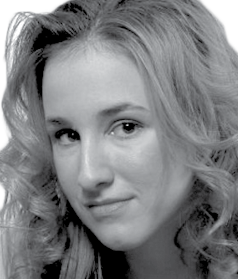The increasingly casual culture in many businesses means that the line between work and personal lives is more blurred than ever. After all, the in-office happy hours, team-building retreats and progessively lax policies about dating colleagues mean that connecting with people you work with is not only expected but encouraged.
That doesn’t mean there is no longer a need for decorum, etiquette and maintaining boundaries in work relationships that do not apply to other, more personal connections. In addition to lessons from this month’s three case studies, apply these rules to your work relationships in order to maintain healthy dynamics with your boss, colleagues and clients.
Related: 7 Tips to Be the Right Kind of Professional at Work
1. Be clear with yourself and upfront about what constitutes personal information.
This includes your romantic life, problems with friends, details about your personal finances, health issues and family drama. Yes, sometimes an issue with the above will arise that you need to inform your team about—say, a health issue that requires special arrangements—but your colleagues are not your bartender. Save the details for your friends and family (or the actual bartender).
2. Watch the social media.
You’re probably connected to some business partners on Facebook, Instagram or Twitter. Watch yourself. Yes, that is your personal account, but the reality is that it is hardly private and fair game for all eyes to see.
3. Don’t drink too much at happy hours.
Just don’t.
4. Help keep your cohorts in check.
When a work friend starts oversharing about a weekend date or taking detailed calls with their physician, give them a gentle reminder that they might compromise their professionalism. “Hey, I’m sorry to hear about your health issues, but I just thought you’d want to know: When you were talking in the open office space to your doctor, a lot of people heard. I’m sure your boss would understand if you had to step outside to take that kind of call.”
Connecting with people you work with is not only expected but encouraged. That doesn’t mean there is no longer a need for decorum, etiquette and maintaining boundaries in work relationships.
 Kaeli Sweigard
Kaeli Sweigard
29; communications officer for a nonprofit and owner of LearningBJJ, a blog for women in Jiu-Jitsu; Oakland, California
I have learned that healthy boundaries mean I am responsible to my co-workers and friends but am not responsible for them. With my website, I often have friends guest-blogging for me, and I make a point of not micromanaging. Even when dealing with friends on work projects, I will always do my best to contact them from my work email and official channels, rather than my personal Facebook, to keep it clear within what context we are interacting. Challenges will inevitably come up, and having these boundaries in place is my personal insurance policy against things getting awkward.
 Stephanie McDonald
Stephanie McDonald
48; recruiter; Charleston, South Carolina
I work closely with human resources teams and am therefore privy to highly confidential information, from firings to acquisitions, so professional boundaries are paramount. I typically end up being friendly with other people who are in HR or other positions that give them access to confidential information. This commonality makes it easier to avoid any tricky situations where oversharing might be an issue. I am also very clear about what I am willing to discuss and what is off-limits. If someone pushes those boundaries, I will warn them that they are making me uncomfortable. If they continue, it’s doubtful I will continue to consider them a work friend. When I met my best friend, I was a recruiter and she was the executive assistant to the president of our company. We both had access to very sensitive information but became close personal friends. We both respected each other’s professional boundaries, and even now, several years since we have both left that company, we are still best friends.
 Kristin Marquet
Kristin Marquet
37; founder and creative director of CreativeDevelopmentAgency.com; New York
To maintain healthy relationships with my team, I aim to know my limits. When I feel uncomfortable or stressed about a certain subject such as a health or family issue, I just don’t talk about it. My employees don’t need to know everything that happens in my personal life. Also, if I am at an after-work event with my employees or clients, I socialize with them enough so there is a connection, but again, I don’t overshare. I always monitor how much alcohol I consume for the same reason. I coordinated a client event a few years ago, and one of her assistants got so drunk and told me about my client’s divorce, affair and health issues. Needless to say, I spoke to my client about her assistant, and the assistant was fired.
Related: 7 Communication Mistakes You’re Making at Work
This article originally appeared in the August 2017 issue of SUCCESS magazine.


